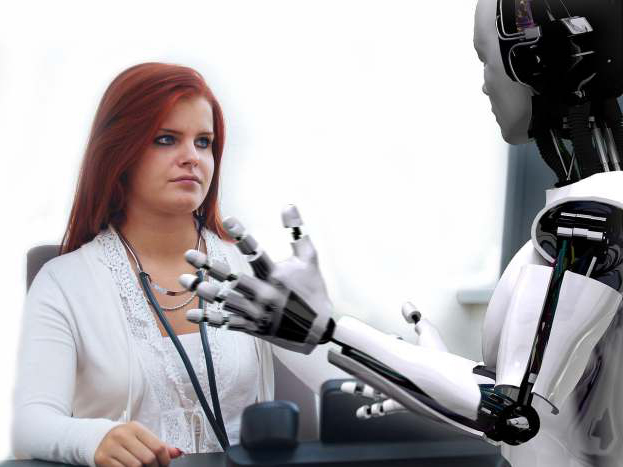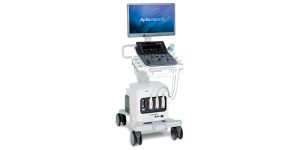Embracing technology to keep health records made medical information more accessible. Still, there’s a problem with how to collect data effectively. Machine learning can address this problem by offering tools for fast data processing. Such technologies as natural language processing and optical character recognition facilitate data collection and accelerate administrative workflow
In the early 90s, when personal computers and the Internet became more accessible, hospitals actively began to implement electronic medical record software. According to the Centers for Disease Control and Prevention, 85% of office-based physicians use an EMR/EHR system.
Technology is changing the healthcare industry for the better. EHRs, telehealth, and other information technologies are making it easier to get medical treatment. Machine learning is a subset of artificial intelligence that is developing rapidly nowadays.
Machine Learning already simplifies disease diagnosis and helps physicians draw up treatment plans more precisely. Its algorithms process vast amounts of patients’ data to make reasonable conclusions faster and more accurately than the human brain.
Although machine learning technologies are far from completely replacing humans, they greatly simplify physicians’ work and help make smart decisions. Here’s a closer look at how machine learning is improving the healthcare industry.
Embracing technology to keep health records made medical information more accessible. Still, there’s a problem with how to collect data effectively. Machine learning can address this problem by offering tools for fast data processing. Such technologies as natural language processing and optical character recognition facilitate data collection and accelerate administrative workflow.
The global articial intelligence in healthcare market size was valued at $15.4 billion in 2022 is expected to expand at a compound annual growth rate (CAGR) of 37.5% from 2023 to 2030. The growing datasets of patient health-related digital information, increasing demand for personalized medicine, and the rising demand for reducing care expenses are some of the major driving forces of the market growth. The growing global geriatric population, changing lifestyles, rising prevalence of chronic diseases has contributed to the surge in demand for diagnosing and improved understanding of diseases in their initial stages. Artificial Intelligence (AI) and machine learning (ML) algorithms are being widely adopted and integrated into healthcare systems to accurately predict diseases in their early stage based on historical health datasets (Grand view research).
Increased treatment protocol
Treatment planning often requires a lot of time and knowledge of medical specialists. Developing a treatment plan is highly complex when we talk about cancer therapy. Depending on each patient’s body type and tumor peculiarities, therapists should develop balanced treatment procedures to deliver precise portions of radiation to the tumor and minimize irradiation to healthy organs.
Machine learning algorithms can analyze patients’ medical information and create personalized treatment plans based on previous successful treatment plans databases. The study reveals that machine learning-based treatment plans were preferred to human-made ones and were used in 88% of prostate cancer radiation therapy cases.
The global artificial intelligence in healthcare market size was valued at $15.4 billion in 2022 is expected to expand at a compound annual growth rate (CAGR) of 37.5% from 2023 to 2030. The growing datasets of patient health-related digital information, increasing demand for personalized medicine, and the rising demand for reducing care expenses are some of the major driving forces of the market growth. The growing global geriatric population, changing lifestyles, rising prevalence of chronic diseases has contributed to the surge in demand for diagnosing and improved understanding of diseases in their initial stages. Artificial Intelligence (AI) and machine learning (ML) algorithms are being widely adopted and integrated into healthcare systems to accurately predict diseases in their early stage based on historical health datasets (Grand view research).
 Drug development
Drug development
The traditional drug development process is complex. It requires a lot of time and financing to put the drug to market. It could take more than ten years and over $2 billion to develop a new medicine.
Machine learning can assist chemists and pharmacists in boosting the drug discovery pathway. ML algorithms apply to each stage of drug discovery, from target validation to digital data processing in clinical trials. The main goal of ML in the pharmaceutical industry is to improve processes and outcomes. For example, Pfizer’s pharmaceutical company used Al technologies to accelerate clinical trials when developing the Covid-19 vaccine. The algorithms managed to clean up patients’ data in less than 24 hours when it usually takes up to 30 days with manual datasets analysis. The ML tool also provided quality data throughout the trial with little human intervention.
Real time analytics
Analytics in healthcare focuses on improving care experience. Patient data measurement and analytics facilitate decision-making by providing evidence to support medical insights. There are few stages of analytics capabilities. Descriptive and diagnostic analytics are traditional methods that work with past data to create statistical reports such as a percentage of patients sick with flu compared to last and previous months.
The next analytics stages are predictive, prescriptive and cognitive analytics. These methods require advanced computational algorithms to perform forecasting, real-time suggestions, and automated decision-making. Machine learning techniques provide the healthcare industry with insightful information & help to make intelligent decisions. Analytic outcomes, when decoded right, can enhance the treatment process, speed up recovery, foreseen relapses, save costs, & more.
AI-based analytics is developing rapidly. Such companies as ConcertAI use real-world data and machine learning models to optimize patient care and promote recover y. ConcertAI provides on-demand access to real-world data repositories and AI-driven oncology solutions to improve cancer treatment. Recently, the company started a collaboration with FDAto bring real-world evidence to regulatory decisions.
Enhanced data Security
Technology integration in the healthcare industry has led to a growth of sensitive data. Patients’ records, personal information, diagnostic reports, test results are excellent targets for manipulation by cybercriminals. Dealing with data breaches’ consequences is costly and time-consuming. According to the Bitglass healthcare breach report, the average cost per breached record in 2020 was $499. Considering 26.4 million records were hacked, healthcare organizations spent $13.2 billion on data breaches. That’s why protecting patients’ data is crucial for the healthcare industry.
Personalized patient care
Personalized medicine is based on diagnostic tests to determine the best medical treatment for each individual. Physicians consider a patient’s clinical history, circumstances, and risk factors to develop a unique treatment plan or prevent disease relapse. Personalized medicine is gaining momentum due to improved knowledge about diseases and new analytics approaches powered by AI technologies.
What does the future hold?
Machine learning has the potential to transform the ways physicians deliver medical care. Automation and predictive analytics will enable caregivers to refocus their efforts on improving patient care rather than dealing with mundane tasks. AI- based technologies could take over different practitioners’ duties, from administrative functions to fast and precise diagnosis to remote real-time treatment. This shifting paradigm will transform the approaches to medical education. Future practitioners will require advanced skills of working with data and innovations, continuous learning, and operating with knowledge from different disciplines.
The AI development in healthcare is moving towards hybrid models that can support clinicians in diagnosing diseases, drawing up treatment plans, monitoring patients, and analyzing risk factors while leaving humans the opportunity to make responsible decisions. According to the Intel survey, only 37% of healthcare decision-makers already use AI tools. Many operational processes in medicine still need to be improved, and artificial intelligence technologies, including machine learning, can contribute to the healthcare industry. Therefore, the development of AI-powered healthcare applications is in high demand nowadays. We are moving towards a high-tech society in which medicine is acquiring new tools for interacting with patient data to treat people more effectively.









